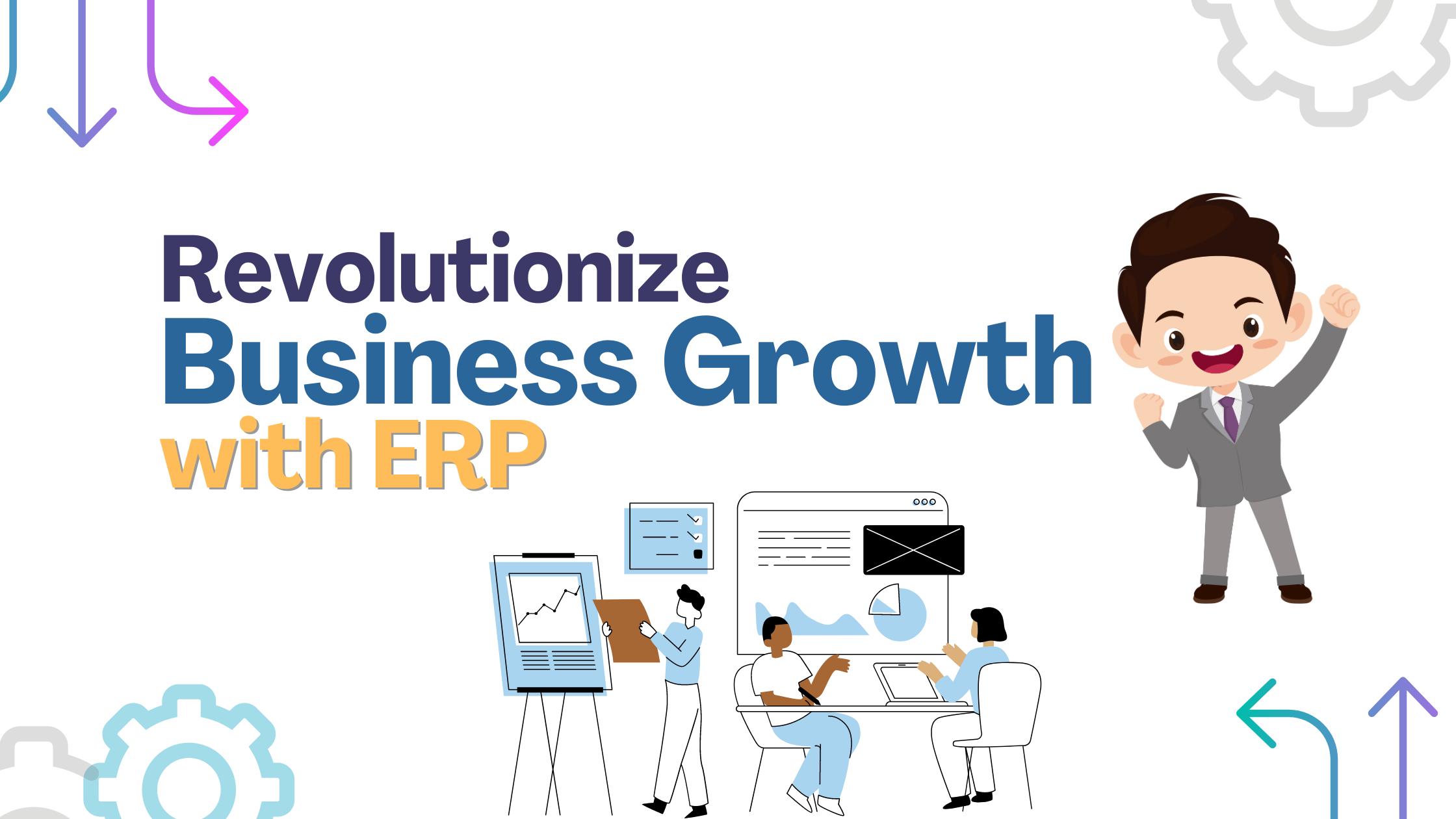Revolutionize Your Business Growth with ERP: The Digital Transformation Powerhouse
In today's rapidly evolving business landscape, companies are increasingly turning to digital solutions to enhance their operations, improve efficiency, and drive growth. One such solution that has gained prominence is Enterprise Resource Planning (ERP) systems. ERP systems integrate various business processes, providing a unified platform for managing resources, data, and operations. This article explores how ERP can digitally transform a company and propel business growth, backed by real-life examples and statistics.

- Streamlining Operations and Enhancing Efficiency: ERP systems centralize business processes, reducing the redundancy and fragmentation associated with traditional methods. By integrating functions such as finance, human resources, supply chain, and customer relationship management into a single system, ERP enables seamless information flow and collaboration across departments.
Case Study - Toyota: Toyota, the global automotive giant, implemented an ERP system to streamline its manufacturing and supply chain processes. The ERP system allowed Toyota to synchronize its operations across various global locations, leading to a significant reduction in inventory costs and production delays. As a result, Toyota improved its overall efficiency and responsiveness to market demands, contributing to its position as a market leader. - Improving Data Accuracy and Decision-Making: One of the critical advantages of ERP systems is their ability to provide real-time data and analytics. Accurate and up-to-date information is crucial for making informed business decisions. ERP systems consolidate data from different departments, eliminating data silos and ensuring consistency.
Case Study - Hershey's: Hershey's, the renowned chocolate manufacturer, faced significant challenges with data accuracy and inventory management. By implementing an ERP system, Hershey's gained real-time visibility into its supply chain and inventory levels. This transformation enabled the company to reduce inventory holding costs by 14% and improve order fulfillment rates. The accurate data provided by the ERP system empowered Hershey's management to make better strategic decisions, driving growth and profitability. - Enhancing Customer Satisfaction: ERP systems contribute to improved customer satisfaction by enabling companies to deliver better products and services. With integrated customer relationship management (CRM) modules, businesses can gain insights into customer preferences, purchase history, and feedback, allowing them to tailor their offerings and enhance customer experiences.
Case Study - Amazon: Amazon, the e-commerce giant, leverages an advanced ERP system to manage its vast operations and customer interactions. The ERP system helps Amazon track customer orders, manage inventory, and optimize logistics. As a result, Amazon can offer fast and reliable delivery services, personalized recommendations, and excellent customer support. These capabilities have been instrumental in building Amazon's reputation for exceptional customer satisfaction and loyalty. - Driving Innovation and Scalability: ERP systems provide a robust foundation for innovation and scalability. By automating routine tasks and streamlining processes, ERP frees up valuable resources and time, allowing companies to focus on innovation and strategic initiatives. Additionally, ERP systems are designed to scale with the growth of a business, accommodating increased data volumes and expanding operations.
Case Study - Netflix: Netflix, the leading streaming service provider, implemented an ERP system to manage its financial operations and support its rapid global expansion. The ERP system enabled Netflix to handle complex financial transactions, streamline accounting processes, and ensure compliance with international regulations. This digital transformation facilitated Netflix's ability to innovate and expand its content library, reaching millions of subscribers worldwide.
Statistical Evidence of ERP Benefits
- Increased Efficiency: According to a report by Panorama Consulting Solutions, 95% of businesses reported improvements in some or all of their business processes after implementing an ERP system.
- Cost Savings: A study by the Aberdeen Group found that companies using ERP systems experienced a 20% reduction in operational costs on average.
- Better Decision-Making: The same Aberdeen Group study revealed that organizations with ERP systems were 36% more likely to have real-time visibility into their data, leading to more informed decision-making.
- Customer Satisfaction: A survey by the Hackett Group indicated that 90% of businesses with ERP systems reported improved customer satisfaction and loyalty.
ERP systems have emerged as powerful tools for digitally transforming businesses and driving growth. By streamlining operations, improving data accuracy, enhancing customer satisfaction, and enabling innovation, ERP systems offer a comprehensive solution for modern businesses. Real-life examples from industry leaders such as Toyota, Hershey's, Amazon, and Netflix demonstrate the transformative impact of ERP systems. Backed by compelling statistics, it's clear that ERP can be a game-changer for companies looking to thrive in today's competitive market.
